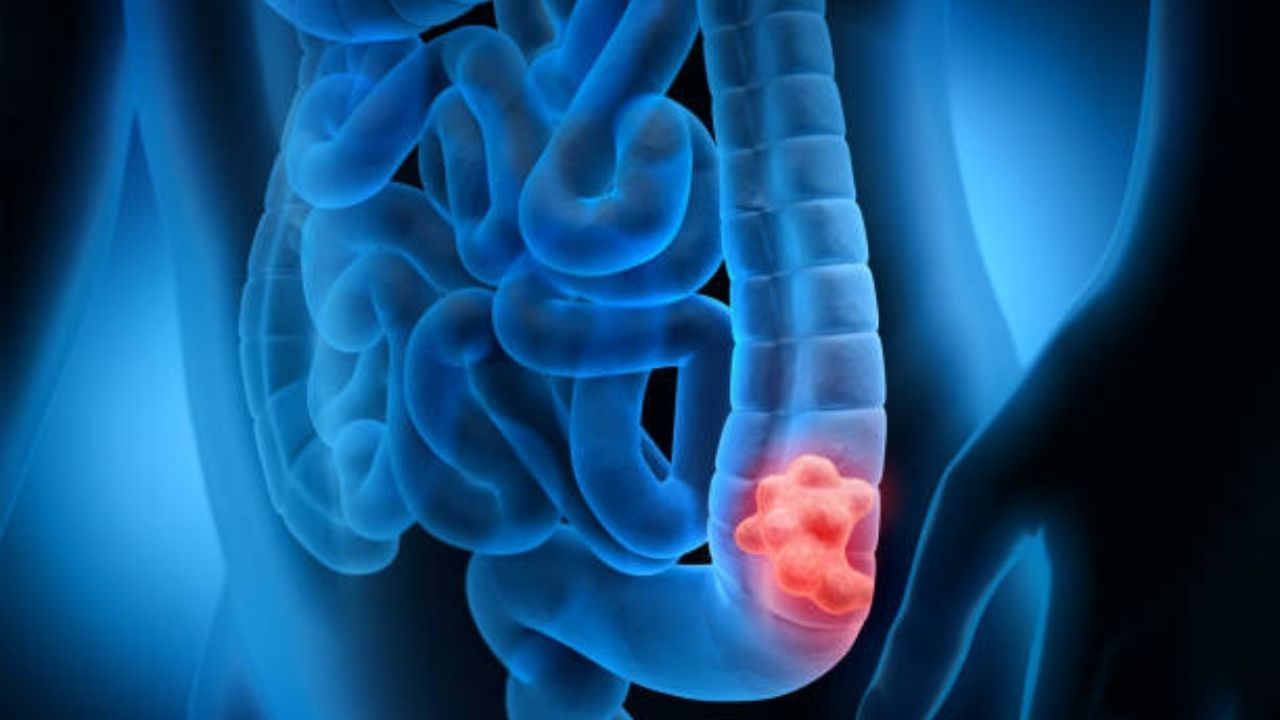Ileus paralytic is a condition in which there is temporary loss of bowel movement, which mainly happens after surgeries in the abdominal region that have involved the bowel, resulting in the development of some symptoms such as constipation, loss of appetite, nausea and vomiting, for example.
Despite being often associated with abdominal surgeries, ileus paralytic can also occur due to the presence of inguinal hernias or the use of some medications, and it is important that the cause is identified so that the most appropriate treatment is initiated to prevent the development of complications.
Brief overview:
• What is an intestinal obstruction? A partial or complete disruption of food transport within the intestine. The condition is life threatening!
•Types : A distinction is made between a mechanical (passage blocked by an obstacle) and a paralytic (functional disorder of the intestine) intestinal obstruction.
• Causes : Depending on the form, there are various causes. Mechanical: tumors, adhesions, a twisted bowel and more. Paralytic: vascular occlusions, chronic inflammatory bowel diseases and others.
• Symptoms : With ileus paralytic occlusion, no bowel sounds are heard, the bowels bloat, diffuse pain in the abdomen, no bowel movements. Mechanical: colicky pain, abdominal distension, severe nausea, vomiting and others.
• Diagnosis : After taking the medical history, a physical exam is done, during which the doctor listens for bowel sounds. The occlusion can be precisely localized with the aid of X-rays, ultrasound and CT.
• Treatment : Therapy depends on the cause. The intestinal pressure is reduced by means of an intestinal tube. If necessary, an enema can stimulate bowel movements (only in the case of paralytic obstruction). In the case of a mechanical shutter, the obstacle must be removed.
• Prognosis : A mechanical occlusion that is treated quickly has the best prognosis. If left untreated, serious complications can occur, such as an intestinal perforation, which leads to peritonitis.
What is ileus paralytic?
In the case of an ileus paralytic, the intestinal passage stops. In contrast to the mechanical form, the reason here is paralysis of the intestinal muscles. There are various causes of a paralytic bowel obstruction. Blood clots, abdominal surgery, intestinal diseases and disorders of metabolism or nerve function are among the reasons.
The symptoms of ileus paralytic usually appear more gradually than with other types of intestinal obstruction. A typical indication of intestinal paralysis is listening to the abdomen: there are no intestinal sounds.
In many cases, an ileus paralytic can be treated conservatively, i.e. without surgery. If the intestinal paralysis results from a mechanical ileus, however, an operation is necessary.
Causes of ileus paralytic

Basically, a distinction can be made between an ileus paralytic and a mechanical ileus with regard to the causes. In a mechanical ileus, an external or internal obstruction partially or completely obstructs the natural passage of the intestine. The small intestine is affected much more frequently than the large intestine.
Ileus paralytic is most often related to abdominal surgeries due to the formation of fibrous tissue, however other situations that may favor the development of ileus paralytic are:
- Bowel cancer
- Inflammatory bowel diseases such as Crohn’s disease
- Diverticulitis
- Colon torsion
- Inguinal hernias
- Parkinson’s disease
In addition, ileus paralytic can occur as a result of the use of some drugs such as narcotics, such as hydromorphone, morphine, or oxycodone, and/or tricyclic antidepressants, such as amitriptyline and imipramine.
In the case of ileus paralytic, on the other hand, there is a functional and not a structural disorder. The intestinal passage is not prevented by external or internal constrictions, but comes to a standstill due to a lack of intestinal movements. This lack of intestinal peristalsis can be the result of vascular occlusion, for example.
The acute occlusion of a vessel supplying the intestine is also called a mesenteric infarction by physicians . Such mesenteric vessel occlusion usually affects elderly people with cardiovascular diseases.
Likewise, chronic inflammatory bowel diseases such as Crohn’s disease or ulcerative colitis can cause paralytic ileus. The same applies to drugs such as antidepressants or opiates, as well as to various poisons (toxins) that are excreted, for example, by pathogens that cause diarrheal diseases.
A reflex-induced paralytic ileus can be caused by abdominal injuries, colic, craniocerebral trauma or by surgery. Disturbances in the electrolyte balance or severe kidney diseases can also lead to paralysis of the intestinal muscles.
It is important that the paralytic ileus is identified and the treatment started immediately afterwards, because this way it is possible to prevent complications such as sepsis, which corresponds to a generalized infection caused by intestinal bacteria that are not properly eliminated, or intestinal obstruction, which can have several consequences for the health.
Symptoms of ileus paralytic
Symptoms of ileus paralytic are related to decreased bowel movements, with abdominal pain, loss of appetite, constipation, swelling of the abdomen, bloating, nausea and vomiting.
In more severe cases, complications such as cell necrosis of the intestine can occur due to the decrease in blood at the site or perforation of the intestine, in rarer cases, which can cause an infection called peritonitis, which occurs due to the increase in the proliferation of intestinal bacteria and which can increase the risk of generalized infection.
In ileus paralytic, parts of the intestine are completely paralyzed, so there are no signs of bowel movement. There are no intestinal noises to be heard and the intestines are also very bloated. If peritonitis occurs as a result of the intestinal obstruction, the abdominal wall is hard and clearly sensitive to pressure. One speaks here of a drum belly . In addition to diffuse abdominal pain, the patients also suffer from hiccups, but there are no stools or flatulence. In the later course of the disease, gushing vomiting is added.
In the case of a mechanical intestinal obstruction, on the other hand, the intestine is more likely to show overactivity. With the help of hyperperistalsis, which causes colicky pain in the patient , the chyme is supposed to pass through the constriction in the intestine. During auscultation and listening with a stethoscope, the doctor can hear ringing, spurting or whistling bowel noises in the area of the occlusion.
The blockage in the intestine leads to an increased of gas, so that the abdomen appears bloated. However, the intestinal gases cannot escape, and both stool and wind retention occur. Severe nausea and massive vomiting are also among the characteristic symptoms of mechanical ileus.
Diagnosis of ileus
If there is a suspicion of an intestinal obstruction, the doctor will ask about the exact location of the pain, the last bowel movement and possible triggers such as operations or existing underlying diseases when taking the medical history. Auscultation, in which the doctor listens to the abdomen with a stethoscope, provides further indications of an ileus.
Squirting or ringing sounds are heard in mechanical ileus, whereas bowel sounds are absent in paralytic ileus. Doctors call this condition the “dead silence in the abdomen”. Intestinal obstruction can also be diagnosed using X-rays. Bloated intestinal loops become visible here just a few hours after the onset of the disease. If the obstruction is in the large intestine, an X-ray examination with a contrast medium that is introduced into the intestine by means of an enema can also be carried out.
The exact localization of the intestinal obstruction is possible by means of ultrasound. Large amounts of gas are just as visible here as accumulations of liquid. If the diagnosis cannot be made with certainty after these examinations, spiral computed tomography provides information.
Treatment of ileus paralytic
The treatment of ileus paralytic aims to treat the cause of the change and promote symptom relief. In some cases, the situation can be resolved without the need for any treatment, being only necessary to stabilize the person by administering fluids through the vein, inserting a nasogastric tube to aspirate the air and the liquid, which will help to relieve the abdominal swelling. However, if there is no improvement, the doctor should choose another treatment in order to prevent intestinal obstruction from occurring.
If it is a medication that is causing the problem, the doctor can stop taking that medication, or prescribe a medication that stimulates intestinal transit, such as metoclopramide or domperidone.
In the case of partial obstruction, that is, if some food and fluids continue to be transported through the intestine, it is only necessary to stabilize the person and eat a low-fiber diet, and a drug can also be prescribed to accelerate intestinal transit.
In cases of total obstruction, or if treatment for partial obstruction does not work, surgery may be necessary to relieve the obstruction, remove a portion of the bowel, or even remove the entire bowel. In cases where the entire intestine is removed, it is necessary to perform an ostomy, which consists of creating a channel that connects the intestine to a kind of bag, through an opening in the abdomen, through which the feces are eliminated.
The prognosis of intestinal obstruction
A mechanical ileus caused by a benign event has the best prognosis. However, if the mechanical intestinal obstruction lasts longer, it can turn into a paralytic ileus. Therefore, a rapid diagnosis with early therapy is very important. The following applies: the sooner the diagnosis is made, the better the prognosis. An untreated intestinal obstruction, on the other hand, can cause serious complications. This allows the intestinal contents to break through the intestinal wall and spread throughout the abdominal cavity. This usually leads to severe inflammation of the peritoneum that can spread throughout the body (sepsis).
In the event of an occlusion, not only is the transport of the food restricted, the resorption function of the organ is also impaired. The loss of fluid and electrolytes can lead to circulatory shock. Likewise, the lack of electrolytes can impair the conduction of impulses in the heart and thus lead to cardiac arrhythmias.
Prevention of ileus
An ileus (intestinal obstruction) or its various causes cannot generally be prevented. However, some measures are helpful for regular bowel movements. This includes a high-fiber diet with lots of fruit, vegetables and whole grain products. Dietary fiber stimulates intestinal activity.
Sufficient fluid intake (1.5 to 2 liters per day) and regular exercise are also important for regular digestion.
After an abdominal operation, adhesions sometimes form in the abdominal cavity, which sometimes trigger an ileus. After an abdominal operation, it is therefore advisable to pay attention to possible signs of an intestinal obstruction (stomach pain, lack of bowel movements, etc.) and, if necessary, to see a doctor early on.
